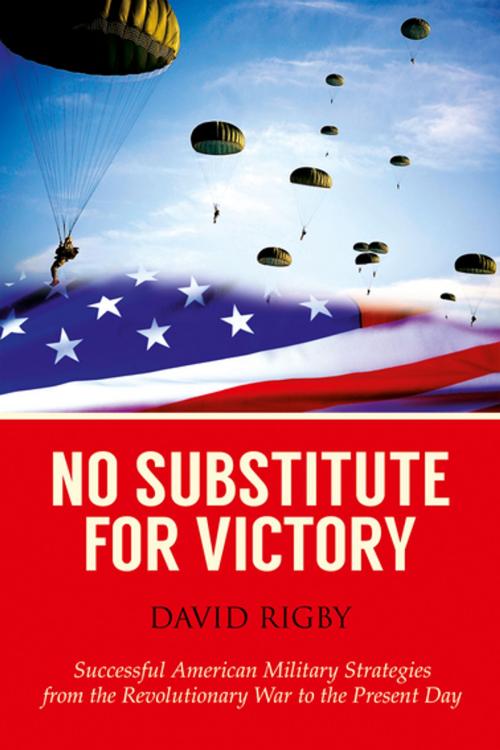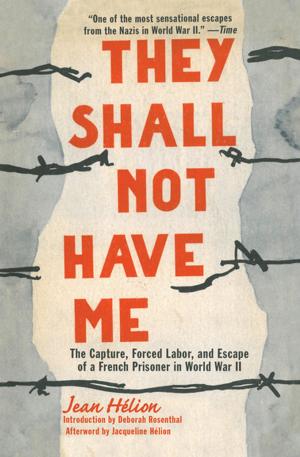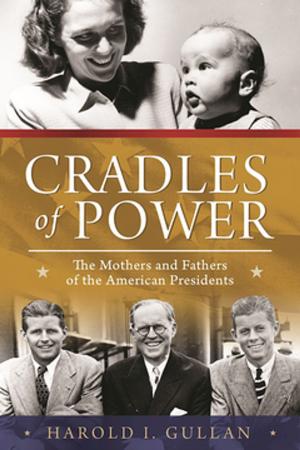No Substitute for Victory
Successful American Military Strategies from the Revolutionary War to the Present Day
Nonfiction, History, Military, Strategy, Americas, United States| Author: | David Rigby | ISBN: | 9781631440182 |
| Publisher: | Skyhorse Publishing | Publication: | November 11, 2014 |
| Imprint: | Carrel Books | Language: | English |
| Author: | David Rigby |
| ISBN: | 9781631440182 |
| Publisher: | Skyhorse Publishing |
| Publication: | November 11, 2014 |
| Imprint: | Carrel Books |
| Language: | English |
**“Neatly encapsulates why the United States has been so successful at warfare . . . should be required reading in the military academies and the White House” (Andrew Roberts, New York Times–bestselling author).
Is there a recipe for military success? In No Substitute for Victory, author David Rigby grapples with this issue and determines that, in the case of the United States, there are a number of different strategies that have brought victory in battle to American forces over the years.
In a clear, energetic prose, Rigby explains how the dropping of chocolate bars from airplanes over Berlin turned out to be one of the most successful applications of the Cold War strategy of containment. He argues, too, that far from being a radical change in policy by a desperate President Lincoln, the Emancipation Proclamation was in fact an essential part of Lincoln’s plan to reunite the nation. While the focus in No Substitute for Victory is on military maneuvers that have been successful, Rigby brilliantly uses the Vietnam War as a touchstone for comparison purposes on how not to fight a war.
“A manual for victory in war based upon an insightful examination of past American successes and strategies . . . Civilian policy makers desperately need this astute analysis . . . and the military senior ranks always seem to need a refresher course. I cannot recommend this highly enough.” —Peter G. Tsouras, author of Major General George H. Sharpe and the Creation of American Military Intelligence in the Civil War
**“Neatly encapsulates why the United States has been so successful at warfare . . . should be required reading in the military academies and the White House” (Andrew Roberts, New York Times–bestselling author).
Is there a recipe for military success? In No Substitute for Victory, author David Rigby grapples with this issue and determines that, in the case of the United States, there are a number of different strategies that have brought victory in battle to American forces over the years.
In a clear, energetic prose, Rigby explains how the dropping of chocolate bars from airplanes over Berlin turned out to be one of the most successful applications of the Cold War strategy of containment. He argues, too, that far from being a radical change in policy by a desperate President Lincoln, the Emancipation Proclamation was in fact an essential part of Lincoln’s plan to reunite the nation. While the focus in No Substitute for Victory is on military maneuvers that have been successful, Rigby brilliantly uses the Vietnam War as a touchstone for comparison purposes on how not to fight a war.
“A manual for victory in war based upon an insightful examination of past American successes and strategies . . . Civilian policy makers desperately need this astute analysis . . . and the military senior ranks always seem to need a refresher course. I cannot recommend this highly enough.” —Peter G. Tsouras, author of Major General George H. Sharpe and the Creation of American Military Intelligence in the Civil War















